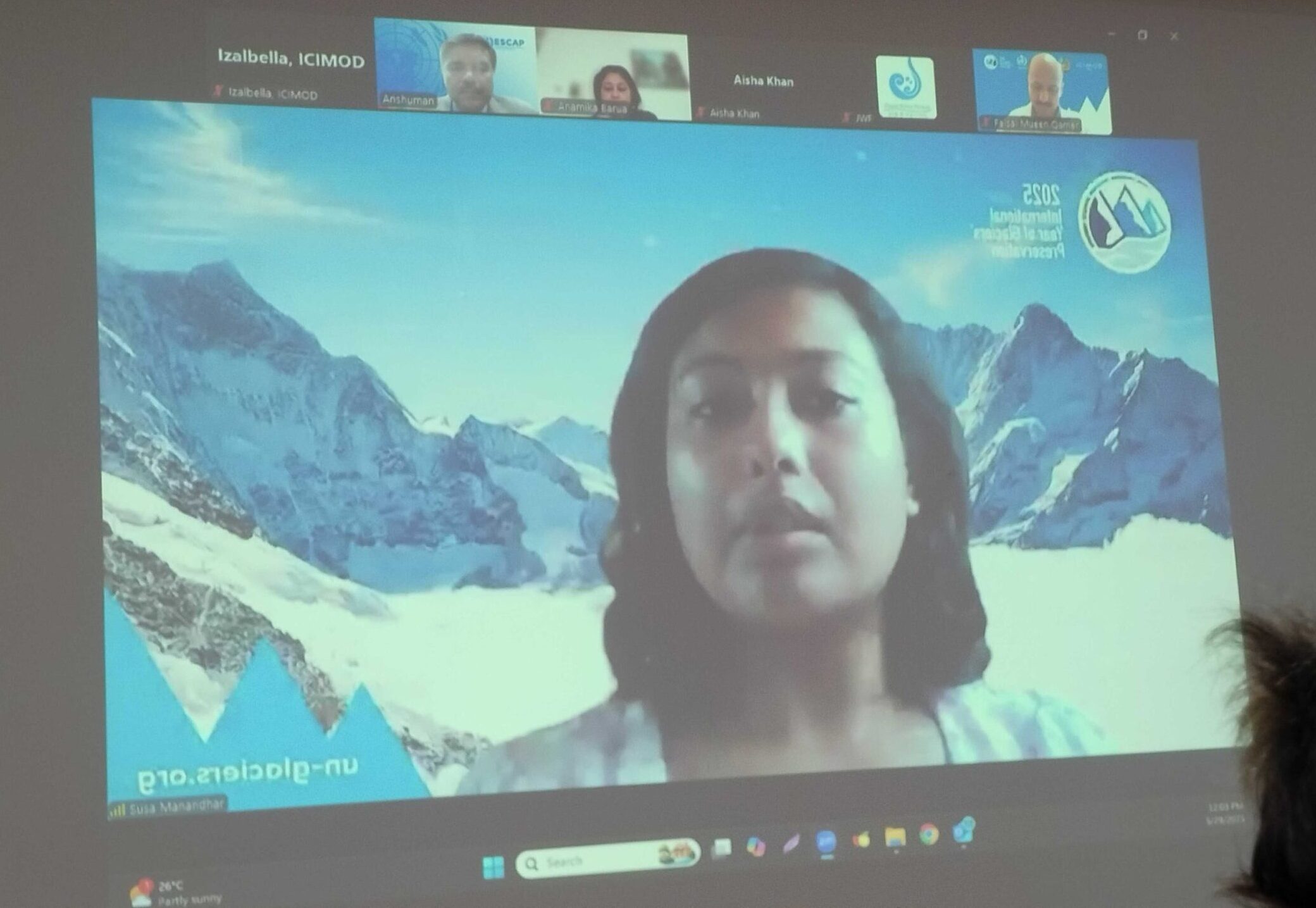The fifth day of the Nepal National Water and Weather Week 2018 (NNWWW-2018) was commemorated by hosting a one-day workshop on the topic “SDG Confab: Synergizing Efforts towards Achieving SDG-6 and SDG-13 in Nepal”. The program was organized by the Small Earth Nepal (SEN) supported by WaterAid Nepal, International Water Management Institute (IWMI) and SNV Nepal at Hotel Himalaya, Kupondole.
To start off the program, Mr. Dhiraj Pradhananga (SEN) delivered a brief welcome speech highlighting the relevance of Sustainable Development Goals (SDG) with the themes of this year’s World Water Day (Nature for Water) and World Meteorological Day (Weather ready, Climate smart). He also, talked about the journey of Nepal National Water and Weather Week (NNWWW) since its inception in 2009 and how it has been successful in collaborating with various I/NGOs, UN Organizations, universities and different communities. His concluding remarks emphasized on the need of efficient water, weather and environmental services from policy level to grass-root level which, is the main objective of NNWWW.
The former half of the program was a technical session namely “Clean Water, Improved Sanitation and Climate Action in Federal System” which was chaired by Mr. Purushottam Ghimire, Former Joint Secretary with the Government of Nepal (GoN).
The first presenter of this session was Dr. Dinesh Raj Bhuju representing the Nepal Academy of Science and technology (NAST). He put forward a series of facts and figures that stressed upon the fluctuations faced by nature and humans on a temporal basis. He further shed light on the alterations faced by Gross Domestic Product (GDP), Life Expectancy, Energy consumption and depletion, climate change and tropical forest depletion on a global scale.
Moving on, Mr. Dipak Gyawali representing the Nepal Academy of Science and technology (NAST) reflected skepticism about Nepal’s aim of over-achieving Sustainable Development Goals (SDG) within the allocated time. Furthermore, he said that to avoid erroneous data generation we should not only depend on technical innovation but should also adopt Behavioral and Managerial Innovation hand in hand. In conclusion, he encouraged the participants to create “critical masses” and instill a surge of “activism” to address issues that have not yet been unraveled to the general public.
After that, Mr. Bipin Dangol from Environment and Public Health Organization (ENPHO) gave a brief description about the Water, Sanitation and Hygiene (WASH) targets. According to him, provision of basic services in the Open Defecation Free (ODF) Campaign and drinking water distribution will fail holistically unless safe management tools are acquired. The last presenter of the session, Ms. Lazana Manandhar from Freshwater Action Network South Asia (FANSA) emphasized on the slogan “Leave no one behind”. She added that transparency and accountability mechanism is required to critically reflect and review the way forward.
The latter half of the confab comprised of panel discussion on how to synergize on Nepal’s Sustainable Development Goals (SDG). The moderator for this session was Er. Mahendra Bahadur Gurung, Former Joint Secretary with the Government of Nepal (GoN).
Mr. Rajendra Aryal, Federation of Drinking Water and Sanitation Users Nepal began the panel discussion by focusing on the bitter reality regarding the lack of joint effort on the localization of Sustainable Development Goals (SDG). He made an interesting remark on how we voice our opinions for our rights but shy away from our responsibilities.
The second panelist, Dr. Vishnu Pandey representing International Water Management Institute (IWMI) accentuated the role of research in informed decision-making. In addition, he stated that water is a prominent resource for the prosperity of a country. He affirmed the inter-relations of all the SDG goals and how the accomplishment of one goal send out waves of positive impact on the rest.
Next, Ms. Anisha Karna from Smart Paani asserted that integration is crucial but difficult to achieve. She further went on to say that just the presence of water schemes is not enough but its functionality is of utmost priority. She pinpointed that investment should be done taking into account: quantity, quality and sustainability.
Finally, Mr. Ngamindra Dahal from Southasian Institute of Advanced Studies (SIAS) introduced the concept of “Paani Chautari” which was driven by the common idea of stakeholder’s engagement. He articulated that the cyclic model of development is superior than linear model in terms of sustainability. To conclude, he talked about the current stage of Climate Adaptive Water Management Planning for cities in Southasia (CAMPS) taking place in cities of similar geography such as Dharan and Dhulikhel (Nepal) and Mussoorie and Haldwani (India).
All in all, the program was successful in addressing the burning issues related to SDG-6 and SDG-13. The expertise shared by well-renowned personalities played a pivotal role in raising discussions among the audience, presenters and panelists. The program ended on a high note with positive remarks from all the participants.




